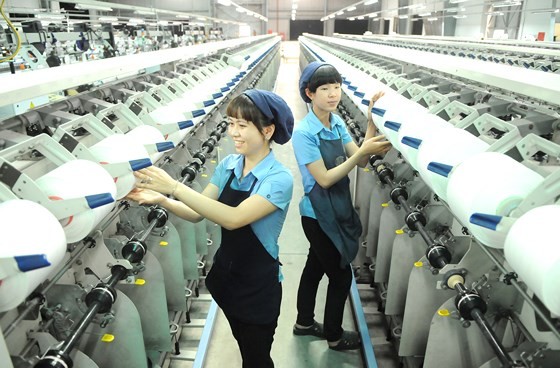
Middle East is a potential market for Vietnam with 400 million people comprising 16 nations. The region spends $40 billion on food and it will be $70 billion by 2035.
Many countries in this region are channeling their trade and investment activities to the East; accordingly it is an opportunities for Vietnamese goods to penetrate and increase its presence in this market.
For years, bilateral trade between Vietnam and Middle East has grown. For instance, in 2016 and 2017, two side export-import turnover was $8.06 billion and $12 billion respectively; of the amount in 2017, exports and imports from Vietnam to Middle East totaled $9 billion and $3 billion.
Vietnam sells mobile phones, shoes, textile products, rice, pepper, wooden furniture items, cashew, vegetables and coffee to Middle East. Of which, rice grew 242 percent in 2016 to achieve revenue of $97 million and vegetables increased 53.4 percent.
As per the Ministry of Industry and Trade, a resident in middle east countries spend a lot on consumption and average GDP per capita in the region is $60,000 – 127,000 annually. Consumer goods, agro-products are two major commodities these countries in the region buy most for local consumption and for tourism.
As there has been a large number of immigrants and tourists to the middle east countries, they need various kinds of commodities. Moreover, they play as middle market to re-export to North Africa and Central Asia.
However, the Ministry noticed about the risks of doing business here such as political unrest, religion conflicts and terrorism. The Ministry warned of fraud; accordingly, Vietnamese enterprises are advised to be vigilant about too attractive deals.
Le Thai Hoa, Deputy Director General of the Africa, West Asia and South Asia Markets Development under the Ministry of Industry and Trade, middle east countries have high demand of relative high commodities.
To facilitate Vietnamese exporters to sell commodities in the next time, the government will simplify paper formalities on taxation, apply one-door policy and reduce clearance time in international ports. The Ministry had simplify several administrative process for facilitation of import-export companies.
Deputy Director of the Ho Chi Minh City-based Vietnam Chamber of Commerce and Industry (VCCI) Nguyen The Hung said in a bid to help Vietnamese enterprises to access to potential market for better cooperation and export, VCCI often organize exchange conference and business trips to foreign markets for local exporters.
Subsequently, UAE’s Relam Investment and Vietnam’s MIG Holdings signed an agreement on the implementation of TRADE-HUB in Vietnam. MIG Holdings Director Nguyen Duy Phuong said TRADE-HUB Vietnam is scheduled to operate in July, 2018 which will be a center connecting producers, service suppliers and financial institutions for Vietnamese and middle east firms.
The TRADE-HUB will organize activities including trade promotion, logistic service connection, appropriate payment methods for each market as well as test partners’ capacity to reduce risks for enterprises, he added.
























